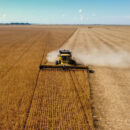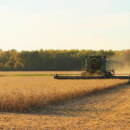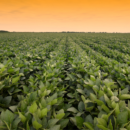FNC News
2025 Crop Input Outlook: Anticipating Slight Reductions Amidst Stability
As we wrap up harvest and prepare for the upcoming year, we often say, “next year will be interesting” and 2025 will be no different. Various factors such as weather, world events, the farm bill, and trade agreements will influence both crop income and expenses.
Currently, 2025 crop inputs are expected to see a slight reduction compared to 2024. While some farms may experience increased costs for specific reasons—such as adding lime, improving drainage, or boosting fertility levels—the overall picture suggests a decrease in expenses for most farms. This reduction is primarily anticipated in fertilizer, crop insurance, and interest costs. Seed, chemical, equipment, labor, and land costs are expected to remain stable. Here’s an explanation of these expenses:
- Fertilizer: Expected to decrease by about 10%.
- Crop Insurance: Cost will be down in 2025 based on current commodity prices for next year. This is due to the premium being based on the commodity price futures and as of now this is lower than 2024 and will reduce the cost.
- Interest Rates: Have decreased slightly, with further reductions expected in 2025.
- Seed, Chemical, Equipment and Labor Costs: Expected to remain unchanged from 2024.
- Land Costs: Holding firm compared to 2024. This is due to demand for land and the land values holding firm so far this fall. The commodity prices indicate both land values and rental rates should be reduced. However, the market is showing most areas are holding at the 2024 levels.
Farm Bill expired as of September 30, 2024. We anticipate either a new farm bill or a one-year extension by spring 2025. There is momentum in Washington to improve risk management provisions, which would be beneficial for 2025.
As always, these expectations are based on no major disruptions from weather, world events, or changes in the farm bill. Any major world or weather event could alter the supply and cost of crop inputs in 2025.
Connect with your local Farmers National Company Farm Manager to discuss how these changes may impact your farm. Contact us today!
More News




